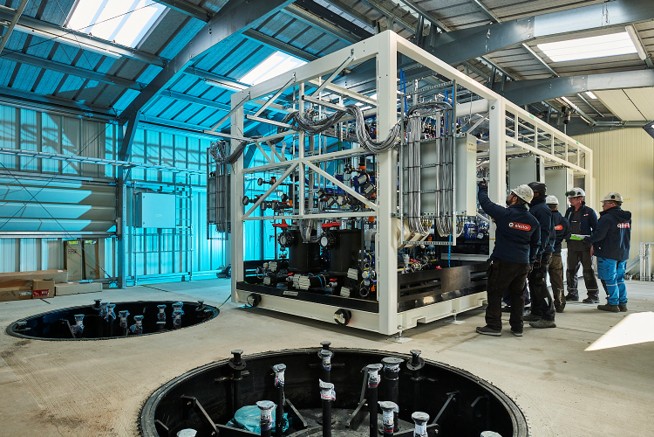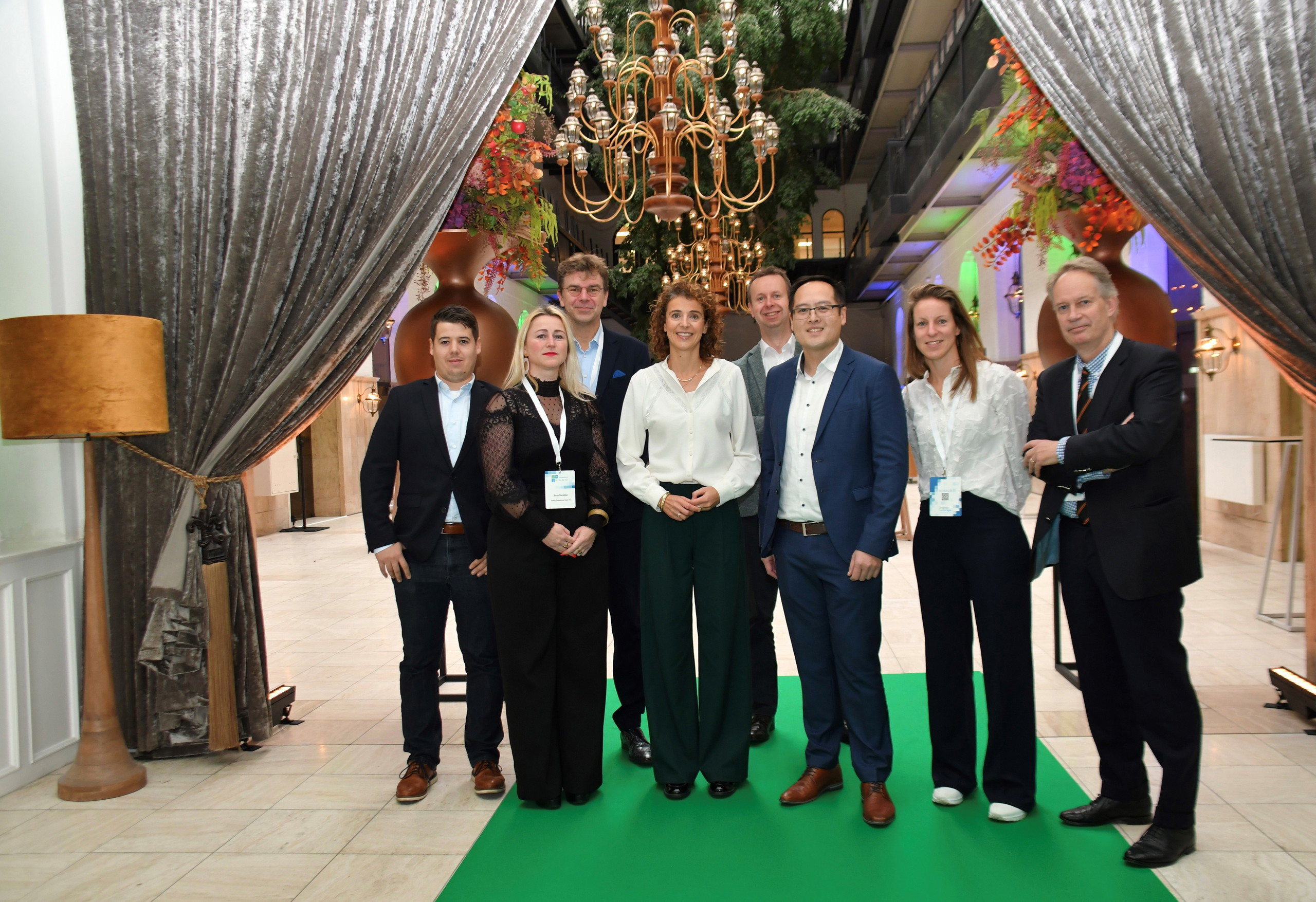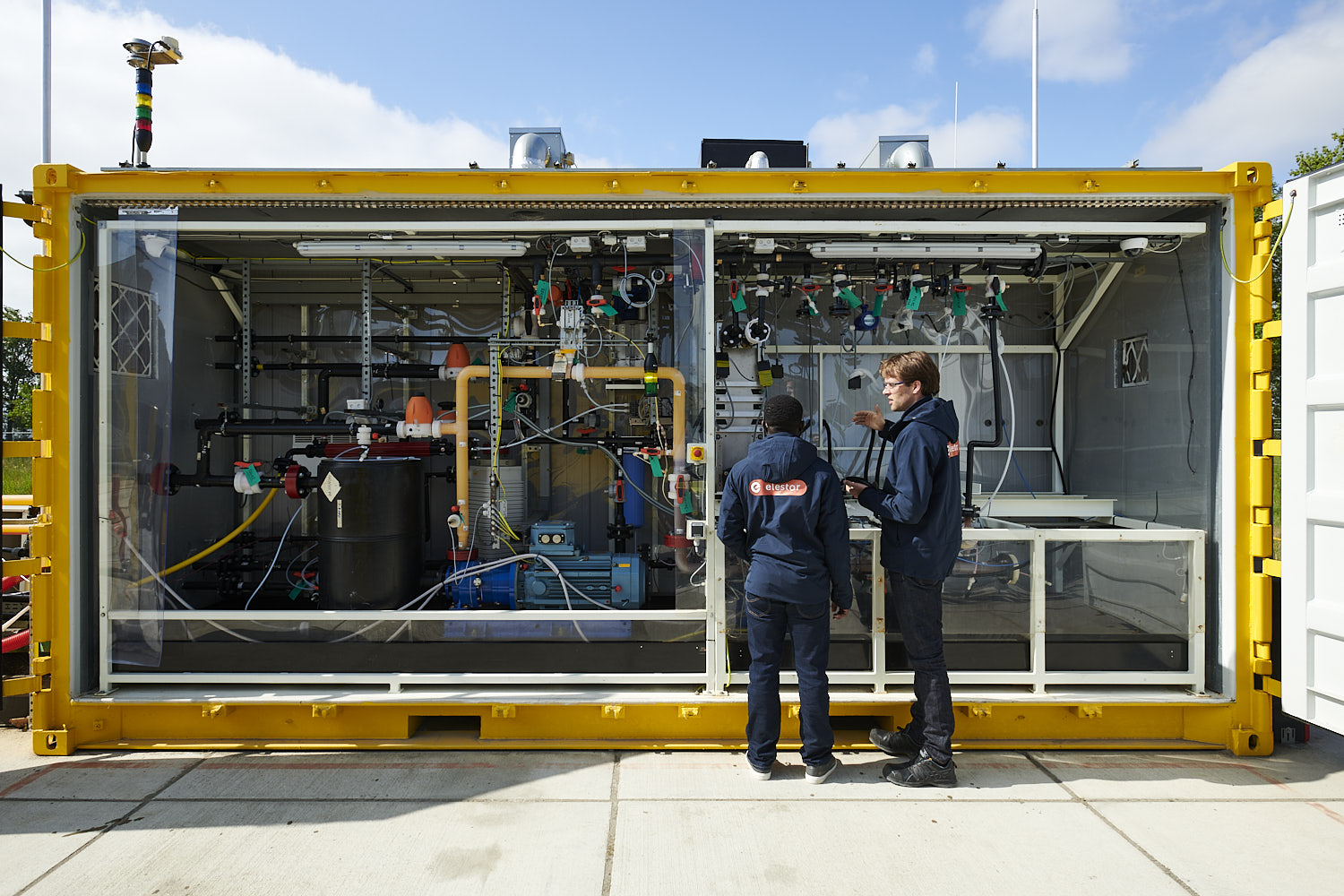
With a subsidy of more than € 20 million awarded by RvO, and a total budget of more than € 30 million, the SLDBatt project in the context of the Growth Fund Material Independence & Circular Batteries is the largest R&D project into battery technology for long-term storage of sustainably generated electricity in the Netherlands. The project makes a significant contribution to the objectives of the growth fund, namely to strengthen the position of the Dutch manufacturing industry in the global battery chain, with a focus on sustainability, independence from scarce materials, and circularity.
Over the past decade, global decarbonisation has been propelled by the dramatic cost reductions of renewable technologies such as wind and solar, which unlocked exponential growth in clean electricity generation. For the next decade to achieve the same transformative success—consistent with the Paris Agreement, the EU’s 2030 energy targets, and the upcoming COP30 global meeting marking ten years since Paris—innovative battery technologies must follow a similar path of cost decline and widespread adoption. The €30 million investment from the “Nationaal Groeifonds” into long-duration energy storage (LDES) R&D is therefore a pivotal step. By accelerating the development of affordable, Netherlands-made batteries, this program strengthens the Netherland’ clean industrial base, enhances energy security, and positions The Netherlands and Europe to lead the next phase of global renewable adoption.
Unique Dutch consortium for battery technology
To reduce the costs of storing renewable electricity and to scale up the production of the envisioned technologies, a project plan for the next three years has been drawn up by a unique consortium of Dutch knowledge institutions and companies, ranging from innovative Dutch start-ups (AQUABATTERY, Elestor, Exergy Storage), to nationally anchored industrial partners such as Nobian, and internationally operating energy companies such as RWE. This broad and complementary cooperation ensures the technological development, practical implementation and effective dissemination of knowledge in the field of sustainable batteries for long-term storage of renewable electricity. These battery technologies are based on principles that require fewer rare materials than existing technologies. The coordination of the project is led by the Battery Competence Cluster NL (BCC-NL), which acts as a national catalyst for connection, knowledge sharing, and acceleration within the broad battery value chain.
Guido Mul, main applicant, University of Twente: "The SLDBatt consortium is an important driver for the development and upscaling of cost-efficient and socially responsible technology for the storage of sustainably generated electricity. With this grant, the consortium can take important steps in the further development and improvement of various technologies. Moreover, this grant makes it possible to determine the best implementation scenario for each technology, for example to prevent grid congestion, or to make Dutch industry more sustainable."
Hylke van Bennekom, CEO Elestor: "This is a unique collaboration between knowledge institutes and market parties which enables the accelerated development of disruptive battery technologies for commercial use, which is crucial for addressing key challenges such as grid congestion and energy security. We cannot wait to kickstart the project with the consortium partners and in fact accelerate technology development.”
Jiajun Cen, CEO AQUABATTERY: “This project builds the knowledge, technology, and demonstrators needed for commercialisation of long duration battery systems and positions the Netherlands as a leader in sustainable energy storage for Europe and beyond. It also reflects the Dutch and European strategy for energy security and resilience through circular and independent material development for a critical energy technology class. We are excited to be part of this innovative collaboration to accelerate market readiness of our sustainable battery technology and contribute to a vital, new industry through the centre of expertise."
The SLDBatt consortium
The name SLDBatt is derived from Sustainable Long Duration Battery Technology. The consortium was formed in response to the Growth Fund Material Independence & Circular Batteries, coordinated by the Battery Competence Cluster NL (BCC-NL), which aims to build a coherent, national program where innovative battery materials and components, production tech, and recycling approaches are assessed. SLDBatt is a collaboration of three technical universities, a university of applied sciences, three companies specializing in technology development, and two internationally operating energy and chemical companies. The project focuses on developing battery systems that can store renewable energy for 8 to 100 hours. This solves one of the most crucial challenges in the renewable energy transition — providing reliable and affordable electricity, especially when wind and solar power are not readily available.

With € 30 million, the SLDBatt project in the context of the Growth Fund Material Independence & Circular Batteries is the largest R&D project into battery technology for long-term storage of sustainably generated electricity in the Netherlands
Minister Hermans with SLDBatt consortium representatives at IEA Energy Storage Symposium in Rotterdam (credits: Mathias de Graag / RVO)
Read more
Elestor’s Hydrogen-Iron Flow Batteries: Powering Europe’s Resilient and Sovereign Energy Future
In its Innovation News Network article from 15 July 2025, Elestor illustrates how its hydrogen‑iron flow batteries can deliver long‑duration, modular energy storage to bolster Europe’s grid stability and strategic autonomy. The story highlights the team’s use of abundant, safe materials and regulatory-aligned design to ensure rapid deployment at scale.
Read more
Permissible technology
Why we find it easy to gain approval for our hydrogen-iron flow battery from both regulators and the general public
Read more
